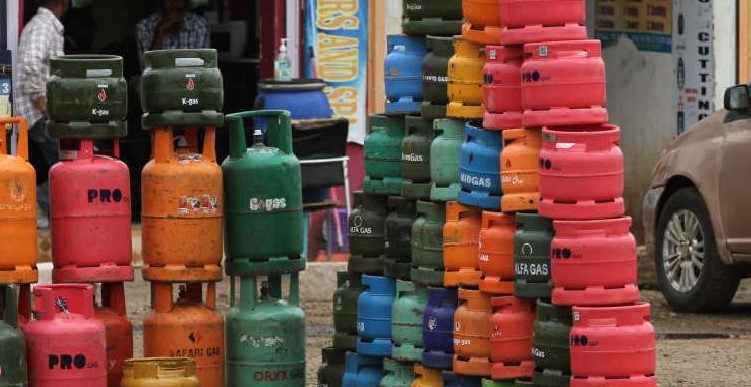The Energy Petroleum Regulatory Authority (EPRA) has revoked the operating licenses of 49 Liquefied Petroleum Gas (LPG) companies for non-compliance.
This is following the Emnbakasi explosion incident that claimed seven lives and left three hundred other people nursing injuries.
Most of the 49 LPG plants whose licenses were revoked were from Nairobi and Kiambu counties, as most were within residential areas.
Appearing before the Senate Energy Committee, Energy Cabinet Secretary Davis Chirchir revealed that an assessment audit was done in all 138 LPG plants in the country, where some were located within a radius of 200 meters from residential areas and were rated risky, posing a danger to residents.
Chirchir explained that gaps exist in surveillance as the enforcement department is understaffed.
Did you read this?
“When we have two officers having to comb through Nairobi county both formal and informal settlement, it wasn’t possible.Thats why we have established a police force of 100,000 to enhance capacity.”
The recent efforts by EPRA came amidst a push by legislators on laxity by the Authority to enforce safeguards to deter the recurrence of the Embakasi explosion incident that claimed seven lives.
“We learnt of the operation of illegal plant on the midnight that the incident happened. We had demolished the LPG plant before and if we arrested them before the incident happened, we would have averted this,” he added.
Enforcement loopholes for the regulator to ensure safe distribution and use of LPG have been linked to the Embakasi incident, with EPRA decrying it's currently understaffed to conduct enforcement.
“In Nairobi Metropolis, which serves five counties is currently understaffed, we only have three officers to go round the formal and informal sector,” said EPRA Director General Daniel Kiptoo
To eradicate illegal filling plants, EPRA has initiated a multi-agency strategy in collaboration with the Ministry of Interior and National Administration and devolved entities.
Given that the illegal plant was being run late into the night, Kiptoo acknowledged that they were surprised when it came to monitoring during the Embakasi gas explosion incident.
“The site where the incident happened wasn’t licensed by us, it was operating as a garage by day and gas refilling plant by night but moving forward we have put in place short and medium target intervention,” he said.
EPRA DG expressed that housing policies by devolved units has interfered with regulations set by the authority, with residential units being built in areas where refilling plants are erected.
“The risk sometimes is for us to shut them down as some of them are bleeding and its no fault of their own because they came before the human settlement,” Kiptoo said.









